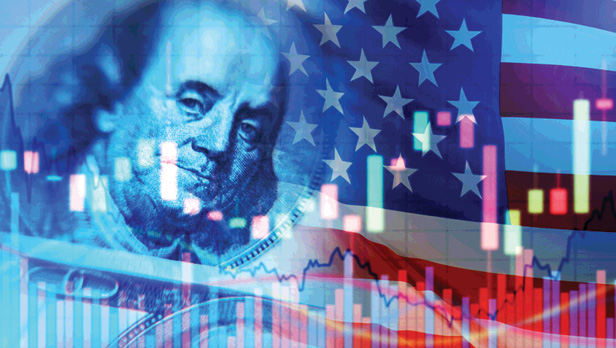March 21, 2024
Stat Spotlight: The Economy Near the Close of Q1
These statistics offer need-to-know insights on an economic picture that’s confounding and complex, but also peppered with encouraging signs.
It’s complicated out there.
Certainly, that’s one way to describe the state of the economy and the promotional products industry’s position relative to it.
One example: Consumer inflation remains stubbornly above the Federal Reserve’s target annual increase range of 2% and came in hotter than expected in February. Still, it’s below the wild highs seen in recent years and enough progress has been made that the Fed is saying it will cut interest rates multiple times in 2024, which could help spur economic activity – a potential boon for promo.
Meanwhile, some see headwinds with unemployment and consumer spending, but hiring has remained relatively strong and U.S. gross domestic product growth forecasts have brightened. Although the fourth quarter of 2023 was essentially flat in terms of sales for promo distributors, preliminary early-year feedback indicates that 2024 is off to a better start.
These stats fill in the particulars to help provide an informed perspective.

103
Early-year projection for the reading of the Counselor Confidence Index in 2024. Such a tally would be above the baseline of 100 and up from Q4 2023. The index measures the financial health and business optimism of promotional product distributors.(ASI Research)
66%
of promo pros polled at the ASI Show Fort Worth in March believe their sales will be “much higher” in 2024 than in 2023.(ASI Research)
2%
Projected U.S. GDP growth rate for 2024, up from an earlier forecast of 0.5.(Vanguard, an investment advisor with $7.7 trillion in assets under management)
2.1%
Forecasted annual U.S. GDP growth in 2024; that’s elevated from a prior prediction of 1.5%.(International Monetary Fund)
3
The number of quarter-percentage-point cuts the Federal Reserve says it plans to make to its benchmark overnight borrowing rate in 2024. The rate establishes what banks charge each other for overnight lending and impacts borrowing/interest rates throughout the economy.
“We believe that our policy rate is likely at its peak for this type of cycle, and that if the economy evolves broadly as expected, it will likely be appropriate to begin dialing back policy restraint at some point this year.” Jerome Powell, Federal Reserve.
3.2%
Rise in the consumer price index in February 2024 compared to February 2023. CPI is an inflation gauge, measuring what consumers pay.(U.S. Labor Department)
3.8%
Year-over-year increase in February in “Core CPI,” which excludes volatile pricing on food and energy.(U.S. Labor Department)
1.6%
The rise in the producer price index this February compared to the same month the prior year. That was the steepest annual rise since September 2023. PPI essentially measures what’s paid at the wholesale level.(U.S. Labor Department)
2%
The year-over-year increase in “Core PPI,” which removes food and energy costs from the calculation to reduce volatility.(U.S. Labor Department)
0.6% & 0.4%
Month-over-month increases from January 2024 to February 2024 in the producer price index and consumer price index.(U.S. Labor Department)
275,000
Number of non-farm jobs the U.S. labor market added in February, better than the downwardly revised showing of 229,000 in January.(U.S. Labor Department)
The industries of healthcare (67,000 jobs), government (52,000), and food services/drinking places (42,000) generated the most job gains in February.(U.S. Labor Department)
3.9%
The U.S. unemployment rate at the end of February. That was a 0.2 percentage point increase from the prior month.(U.S. Labor Department)
6.5 Million
The number of listed unemployed people in the U.S. in February, a year-over-year increase of about 500,000, or 8.3%.(U.S. Labor Department)
1.7 Million
The number of people among the U.S. unemployed reporting permanent job loss in February 2024. That was up by 174,000, or 11.2% percent, from January 2024.(U.S. Labor Department)
0.6%
Month-over-month rise in U.S. retail sales in February – lower than forecasts. Some analysts have opined consumer spending will slow, but others believe it remains strong, having increased in seven of the past 10 months through February.(U.S. Census Bureau)
1.5%
Year-over-year increase in U.S. retail sales in February.(U.S. Census Bureau)
$5.23 trillion to $5.28 trillion
Forecasted total U.S. retail sales in 2024. That would be an annual increase of 2.5% to 3.5%.(National Retail Federation)